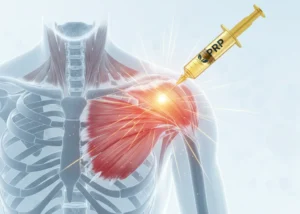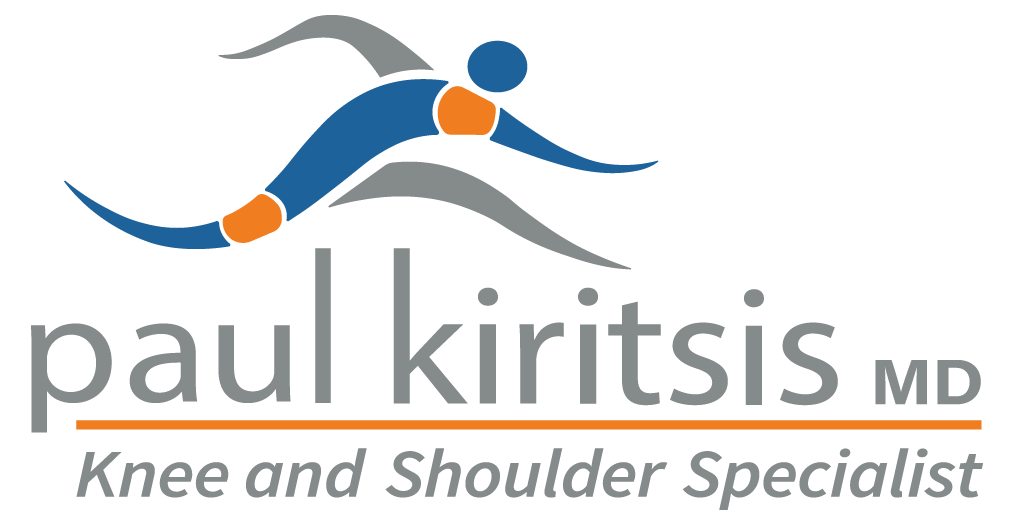Concerned about regretting shoulder replacement surgery? This post covers why some people regret shoulder replacement surgery, why you may not need to be concerned, how to prepare, and what to expect during recovery. If you understand the key factors to make an informed choice, shoulder replacement surgery may be one of the best decisions you can make.
Key Takeaways
- Shoulder replacement surgery aims to relieve pain and improve joint function, with various types available depending on individual conditions.
- Regret after surgery often stems from unmet expectations regarding recovery speed and pain relief, along with potential complications.
- Mental and emotional preparedness, choosing the right surgeon to perform the procedure, effective pain management, and adherence to rehabilitation are crucial for a successful recovery and patient satisfaction.
Understanding Shoulder Replacement Surgery
Shoulder replacement surgery aims to relieve shoulder pain and improve the function of a shoulder joint damaged by arthritis, injuries, or degenerative diseases. The shoulder joint comprises three primary bones: the scapula, humerus (upper arm bone), and clavicle, encased in a capsule that holds lubricating fluids. When these structures are compromised, the resulting pain and limited mobility can severely impact daily life.
There are several types of shoulder replacements, including total shoulder replacement, reverse shoulder replacement, and partial shoulder replacement with Pyrocarbon. Total shoulder arthroplasty is often recommended for severe cases of arthritis or joint damage, where the goal is to replace the damaged components with artificial parts, significantly enhancing the quality of life. For those with significant rotator cuff injuries, reverse total shoulder replacement is a more suitable option.
Pre-surgery assessments typically involve imaging tests like X-rays or CT scans to evaluate the extent of joint damage. Having these evaluations performed by an orthopedic surgeon who specializes in shoulder surgeries is beneficial, as studies indicate that higher-volume surgeons tend to achieve better outcomes.
The choice of surgery type depends on various factors, including the specific condition of the shoulder and the patient’s overall health. My innovative Precision Shoulder Replacement for example, uses cutting-edge 3D surgical planning software to tailor the surgical approach for restoring the patient’s natural shoulder anatomy. This level of detail plays an important role for ensuring the best possible outcomes and minimizing potential complications.
Common Reasons for Regret
Despite the best efforts of surgeons and patients alike, regret is a potential outcome after shoulder replacement surgery. One of the most common reasons for regret is unmet expectations. Patients often hope for rapid recovery and complete pain relief, but healing is a gradual process and may not happen as quickly as anticipated. Moreover, some patients might find that some pain persists, although this is highly unusual, or movement and strength do not fully restore as expected.
Setting practical expectations and understanding the potential risks and benefits is an important step before undergoing surgery.
Having open and honest discussions with your healthcare team about your concerns and the possible outcomes of the surgery is important. Choosing an orthopedic surgeon who specializes in shoulders and performs a high volume of these surgeries can significantly reduce the likelihood of complications and improve overall satisfaction.
The Importance of Mental and Emotional Preparedness
Mental and emotional readiness plays a role in the overall success and satisfaction of shoulder surgery. Factors contributing to this preparedness include emotional support from friends and family, setting realistic expectations, and physical readiness. Engaging in enjoyable activities while waiting for surgery can foster a positive mindset and help manage pre-surgery anxiety.
A strong support system can make a significant difference in navigating the challenges of shoulder surgery. Friends, family members, and mental health professionals can provide the emotional backing needed to face the recovery process. Open communication with your shoulder surgeon is also vital for alleviating fears and uncertainties about surgery. Understanding the recovery timeline and setting achievable goals can help mitigate potential regrets.
Managing expectations about returning to normal activities plays a vital role in patient satisfaction. The reality is that recovery from shoulder surgery can be challenging, with pain and emotional hurdles along the way. However, being mentally prepared and having a clear understanding of the recovery process can make the journey more manageable and less daunting.
Post-Surgery Rehabilitation and Recovery
Rehabilitation is a cornerstone of recovery after shoulder replacement surgery. The main goal is to regain strength and function in the shoulder, which often involves a structured physical therapy program. Physical therapy typically begins a few days after surgery with small hand, wrist, and elbow movements to enhance range of motion and reduce pain.
During the first few weeks, patients need to focus on soft tissue healing and bone integration with the implant. The use of ice can help alleviate pain in the initial stages of recovery. Patients are usually required to wear a sling for four weeks, significantly impacting daily activities. Planning for assistance with daily tasks, especially if the dominant arm is affected, can make the recovery process smoother.
Normal function may return around eight to twelve weeks post-surgery. It’s important to follow the rehabilitation process diligently and work closely with your physical therapist to restore function and promote healing.
Pain Management Strategies
Effective pain management is crucial for alleviating anxiety and discomfort during recovery from shoulder replacement surgery. Patients are often prescribed multiple types of pain medication that work in different ways to control pain optimally. Before discharge, the healthcare team will discuss the timing and dosing of these medications to ensure effective pain control.
Nerve blocks are another effective strategy, providing targeted pain relief and reducing the need for opioids. I employ many advanced techniques in my Precision Shoulder Replacement, including the use of EXPAREL, a long-lasting non-opioid anesthetic, can manage postoperative pain for several days, reducing opioid consumption and shortening hospital stays. Discussing pain management options before surgery can help tailor a plan that suits your needs.
If you experience intense pain that worsens or is unresponsive to prescribed medication, it’s crucial to contact your surgeon immediately. Effective pain management not only provides immediate relief but also promotes healing and aids in the overall recovery process.
Follow-Up Care and Monitoring
Follow-up care is a critical component of the post-surgery recovery process. The typical follow-up schedule includes appointments at one to two weeks, six weeks, three months, six months, and twelve months post-surgery. These visits are essential for monitoring your recovery and addressing any complications that may arise. Maintaining open communication with your healthcare professional throughout the recovery period is important.
Success Rates and Patient Satisfaction
The success rate of total shoulder replacement surgery is generally high, providing significant pain relief and improved shoulder function for most patients.
Many patients find that shoulder replacement surgery significantly enhances their quality of life, allowing them to return to daily activities with reduced pain and improved mobility. This high success rate and patient satisfaction highlight the effectiveness of the procedure in addressing severe shoulder issues.
I am proud of the fact that the success rates and patient satisfaction among my patients are very high. Below are a couple of patient testimonials that you may find helpful.
Summary
Shoulder replacement surgery can be a life-changing procedure for those suffering from chronic shoulder pain and limited mobility. Understanding the surgery, setting realistic expectations, preparing mentally and emotionally, along with selecting an experienced shoulder surgeon are all important steps in ensuring a successful outcome. Effective pain management, diligent rehabilitation, and regular follow-up care are essential components of the recovery process.
By learning from the experiences of others and maintaining open communication with healthcare professionals, patients can navigate the challenges of shoulder replacement surgery with confidence.
Frequently Asked Questions
How painful is total shoulder replacement?
Total shoulder replacement typically leads to reduced pain compared to pre-surgery levels, with many patients experiencing mild discomfort manageable by over-the-counter medications. Most report significant pain relief within 4 weeks.
What are the common types of shoulder replacement surgeries?
The common types of shoulder replacement surgeries are total shoulder replacement and reverse shoulder replacement. Each option addresses specific conditions to improve shoulder function and alleviate pain.
What can I do to manage pain after shoulder replacement surgery?
To effectively manage pain after shoulder replacement surgery, utilize prescribed medications and explore options such as nerve blocks or EXPAREL with your healthcare team. These strategies can significantly enhance your recovery experience.
How important is rehabilitation after shoulder replacement surgery?
Rehabilitation after shoulder replacement surgery is vital for regaining strength and functionality. It typically starts within days post-surgery, emphasizing range of motion and pain reduction.





